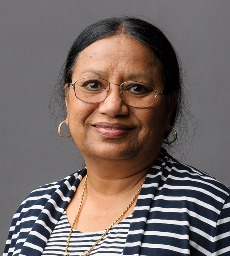National Science Foundation Awards $750,000 Grant to Boost Doctoral-level STEM Education
JONESBORO – The National Science Foundation has awarded a major grant designed to boost doctoral degree program enrollment in the traditional STEM disciplines (science, technology, engineering and mathematics).
Dr. Malathi Srivatsan, director of the molecular biosciences Ph.D. program at Arkansas State University and assistant director of Arkansas Biosciences Institute, is the principle investigator (PI) for the project. Two other Arkansas institutions, the University of Arkansas at Pine Bluff and Philander Smith College, also are involved.
Titled “Bridging the Divide: A Program to Broaden Participation in STEM Ph.D.,” the project was funded at $749,964 over a five-year period, concluding in early 2019.
Dr. Srivatsan will be joined by Dr. Anissa E. Buckner at UAPB and Dr. Nastassia Jones at Philander Smith in administration of the grant, which they hope will result in more Arkansans from underrepresented groups pursuing a graduate degree in the STEM disciplines.
“Arkansas ranks 41st in terms of science and engineering doctorates awarded, 43rd in terms of total research and development performance, and 47th in personal income per capita among U.S. states,” Dr. Srivatsan said. Research has shown that performance in these three key statistical areas is closely interrelated.
“For economic growth in Arkansas, we need to increase our well-trained workforce with scientists and engineers who can innovate and become job creators. We have a significant pool of 'diamonds in the rough' in our state,” she continued, referring to “ . . . underrepresented groups in the STEM areas including racial and ethnic minorities, women, first generation college students, veterans and students with disabilities.”
Dr. Andrew Sustich, vice provost for research and graduate studies at A-State, commended Srivatsan for her leadership in securing the grant, saying, “For the U.S. to maintain its leadership in scientific innovation, which drives our economic development, we need to have a broader STEM workforce that more closely resembles the society in which we live. We are excited that Dr. Srivatsan will be leading the effort to bring more Arkansans into this endeavor of research and discovery.”
Srivatsan said a key facet of the project will be to identify these students early and recruit them in order “ . . . to provide the needed support, mentoring and exposure to the thrills of hands-on experience in doing science. “Over time we can create a large pool of successful scientists with a Ph.D. while expanding the diversity in STEM areas.”
Portions of the project will be adapted for Arkansas from the Fisk-Vanderbilt (FV) bridge program, which has proven successful in encouraging undergraduate students to enter master’s degree programs in preparation for doctoral study.
“As the director of our molecular biosciences graduate program, it is my desire to see our well-trained diverse graduates of the Ph.D. programs shine as stellar scientists in the near future,” added Srivatsan, an A-State faculty member since 2003. “This NSF grant will help us to reach that goal by supporting such recruitment and mentoring, and I am excited to be part of the team with our collaborators from UAPB and PSC to make it happen."
The program will include an annual eight-week summer research program, recruitment of students to environmental science, molecular biology, aquaculture and fisheries master’s degree programs, and peer mentor training for students from partnering institutions.
NSF expects results of the project to guide participating institutions and similar institutions nationally with identifying best practices for increasing the number of STEM graduate degree holders. This should help enhance job growth through competitive innovations in the global economy.
# # #






